The views expressed in our content reflect individual perspectives and do not represent the authoritative views of the Baha'i Faith.
I recently saw “(In)Visible Portraits,” a documentary released in June that unpacks the layers of trauma that Black women endure from being the target of both racism and sexism.
I watched the women and girls featured in the documentary — including two Baha’is, Dr. Joy DeGruy, an internationally renowned researcher and educator who focuses on the intersection of racism, trauma, violence, and American chattel slavery, and Dr. Ruha Benjamin, an associate professor of African American Studies at Princeton University who investigates the social dimensions of science, medicine, and technology — tell their stories and reclaim the narrative about Black women.
Afterward, I reflected on how, as a Black woman, I’ve also felt socially invisible many times in my life. Due to racism and sexism, my presence is more likely to go unnoticed, and it is common for me to be rejected, excluded, or just plain ignored.
For example, when I was an intern at an organization, I wasn’t given as many public PR opportunities as my white counterpart, even though I was studying communications in college and she was a history major with little interest in the field. At another organization, whenever coworkers would go on a coffee run, they would get everyone a beverage but me.
In college, I often received cold expressions when I greeted people with a friendly face. I experienced people literally turning their backs on me after reaching out to them to see if they wanted to collaborate on a project.
This invisibility is not merely a matter of people being rude or disrespectful. It also has life and death consequences. According to Insight News, an estimated 64,000 Black women and girls were reported missing in 2018 in the United States. Yet, there has been little media coverage about their disappearances. And, justice still has not been served for Breonna Taylor or Tanisha Anderson, Natasha McKenna, Michelle Cusseaux, and countless other Black women killed by police.
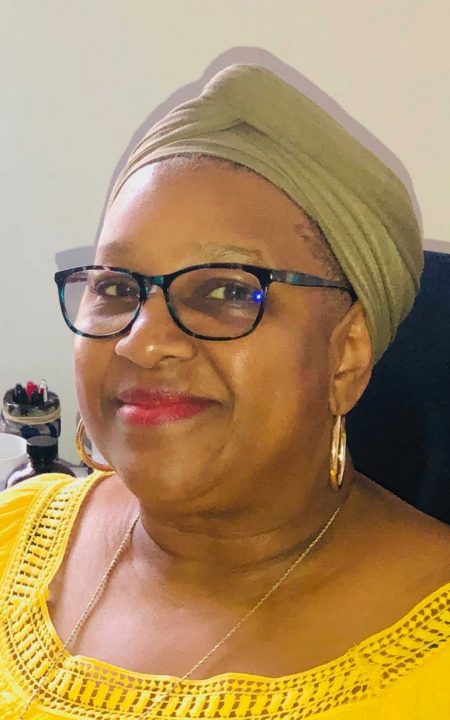
Why do we not know their stories or say their names? Are Black women not valued in society?
Despite all the pain that Black women experience, I’ve found that the Baha’i teachings empower me — and other Black women who are Baha’is say the same.
“I am not hiding my light under a bushel anymore,” Adilah Meredith-Kirton, a Maryland-based family friend who is also a Baha’i, tells me over the phone.
Reading the Baha’i writings helps her remember not to be ashamed of being a Black woman. Adilah says she often turns to these words of Baha’u’llah, the prophet and founder of the Baha’i Faith:
“O SON OF SPIRIT! I created thee rich, why dost thou bring thyself down to poverty? Noble I made thee, wherewith dost thou abase thyself? Out of the essence of knowledge I gave thee being, why seekest thou enlightenment from anyone beside Me? Out of the clay of love I molded thee, how dost thou busy thyself with another? Turn thy sight unto thyself, that thou mayest find Me standing within thee, mighty, powerful and self-subsisting.”
Reading this passage helps Adilah gather her courage in a world where “You’re not seen, you’re not heard, you’re not valued,” she says. Whether it’s at school, at work, or during daily trips to the store, Adilah says she regularly experiences non-Black people — even ones who know her — walking right past her and not acknowledging that she’s there.
During a talk he gave in Paris, Abdu’l-Baha, the eldest son and the designated successor of Baha’u’llah, the prophet and founder of the Baha’i Faith, said: “The diversity in the human family should be the cause of love and harmony, as it is in music where many different notes blend together in the making of a perfect chord. If you meet those of different race and color from yourself, do not mistrust them and withdraw yourself into your shell of conventionality, but rather be glad and show them kindness. Think of them as different colored roses growing in the beautiful garden of humanity, and rejoice to be among them.”
Unfortunately, it feels like people don’t often “rejoice” to be around Black women.
“We [Black women] are forgotten and on the outskirts,” my New York City-based friend and colleague, Makeena Rivers, says. To Makeena, being invisible means not being heard and listened to until someone who is not Black validates your point of view.
Makeena believes that white people treating Black people as invisible has continued since the time of Jim Crow laws that legalized segregation and enforced white supremacy. During this era, Black people were expected to move off the sidewalk if they saw a white person entering their path. Makeena says she recently conducted a social experiment to see if white people would “see” her. While walking down narrow sidewalks in her neighborhood, Makeena says she stopped herself from always being the one to move out of the way. She got bumped into every time, and people would continue walking without acknowledging her presence.
Melissa Jeffries, who lives in Los Angeles, says she always tries to be the first to start friendships in her community. But people often forget her name, ignore her efforts to start conversations, decline her invitations to socialize, and exclude her from social gatherings, birthday parties, and dinners. And this invisibility is also reflected in dating.
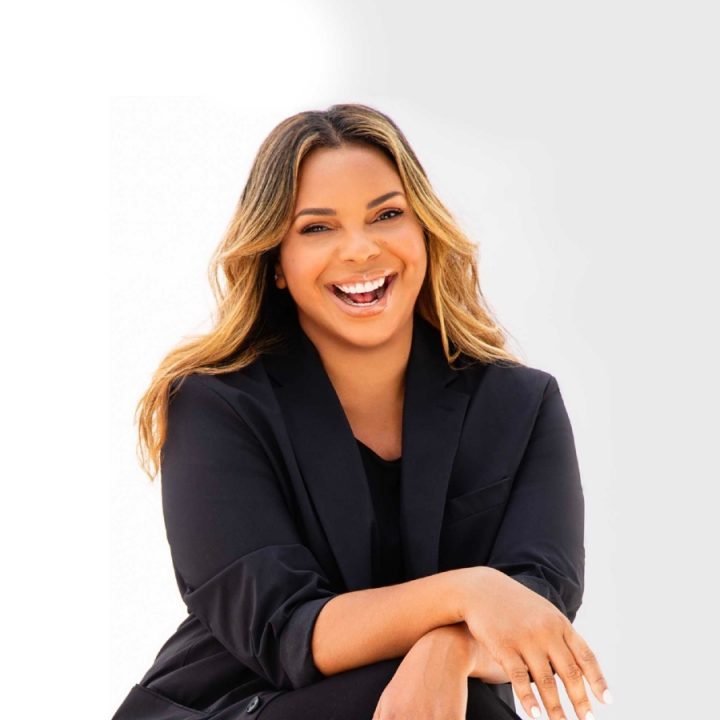
Melissa has been immersed in the dating and relationship business for several years and is the creator of the dating app Wingerly. She says that data from these apps show “clearly and significantly how much more implicit value well-meaning people give to women with [white] features over Black women.”
Whether it’s subconscious or conscious, “These values have been ingrained so deeply in us by white supremacist ideology,” Melissa wrote to me in an email. She recalls an experience when she wanted to get to know a white male friend of hers romantically.
But when she expressed her interest, he told her, “I don’t date Black women.” Melissa’s beauty and intelligence were completely invisible to him.
Shoghi Effendi, the Guardian of the Baha’i Faith, wrote that it’s critical for us to have “a fraternity freed from that cancerous growth of racial prejudice, which is eating into the vitals of an already debilitated society.”
Because of racism, Melissa adds, “Black people in general already have a very low sense of self-worth and are under unimaginable amounts of stress on an hourly basis, especially Black women.”
Makeena says she often wonders, “What is that doing to our psyche and our soul?” And, Adilah adds, “You can become abusive to your own self, your own soul, and think yourself unworthy.”
But each of these women continues to turn to the healing power of the Baha’i writings. Makeena says that because she is a Baha’i, she feels like she is “in touch with spiritual forces.” That’s motivated her to learn how to use the arts to express herself. Melissa shared that she’s learned “to love unconditionally without judgment” and “continue to have empathy for — or nurse relationships with — people.”
I found my voice through the written word, which gives me the opportunity to not just speak my truth, but to also shine a light on many others’ truths and stories as well. People may sometimes not “see” other Black women or me, but that won’t stop us from showing up — or speaking up.


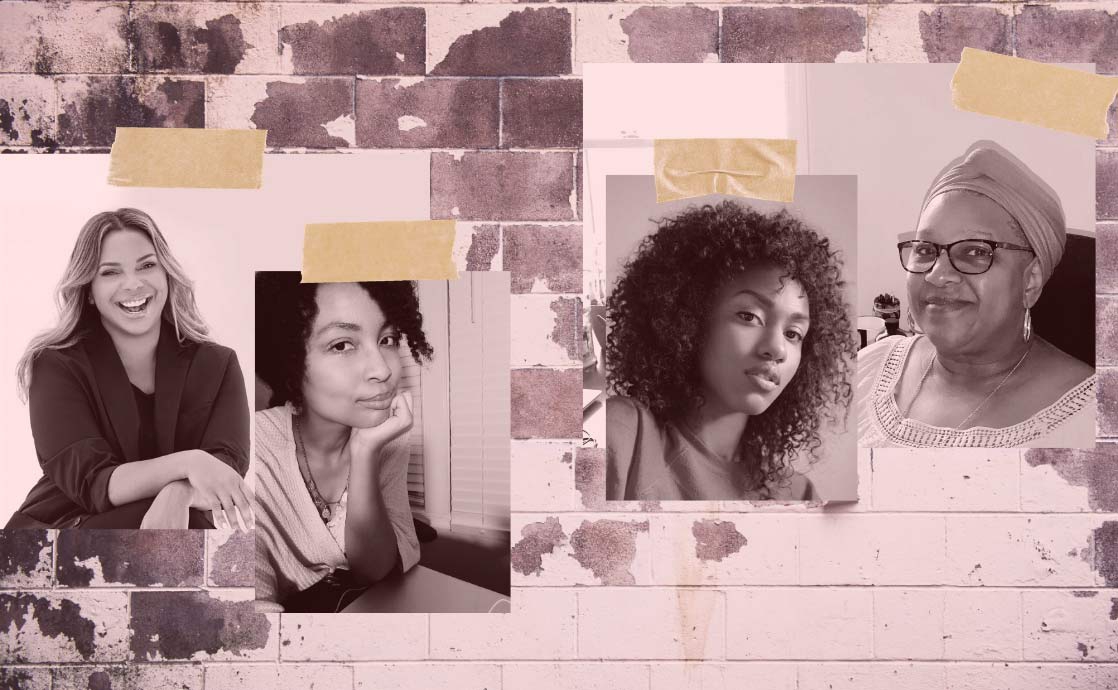
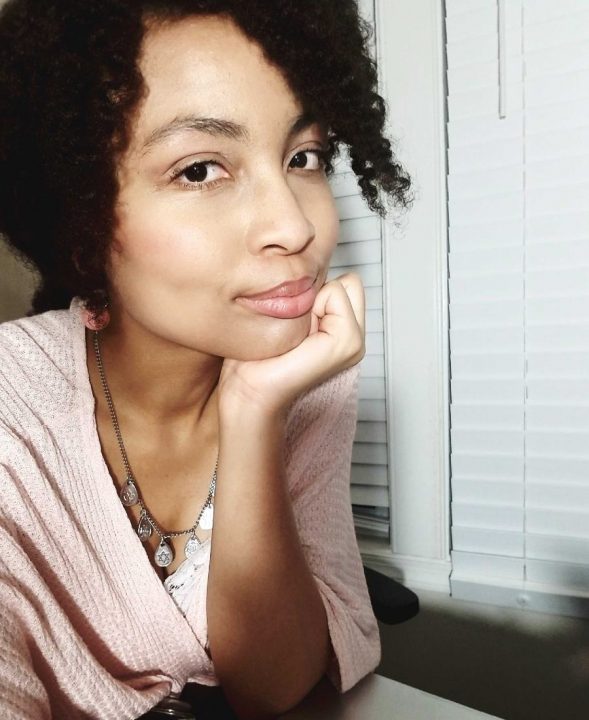
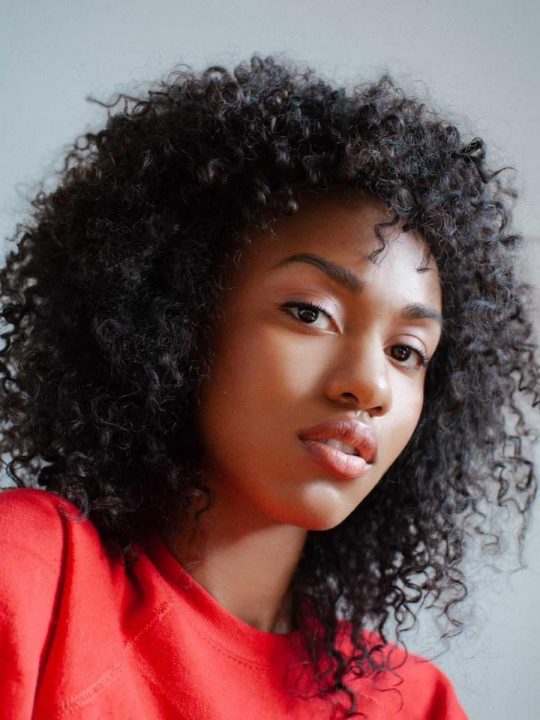

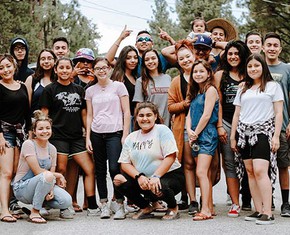

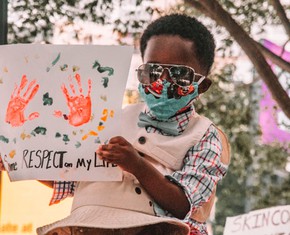









Comments
Sign in or create an account
Continue with Googleor